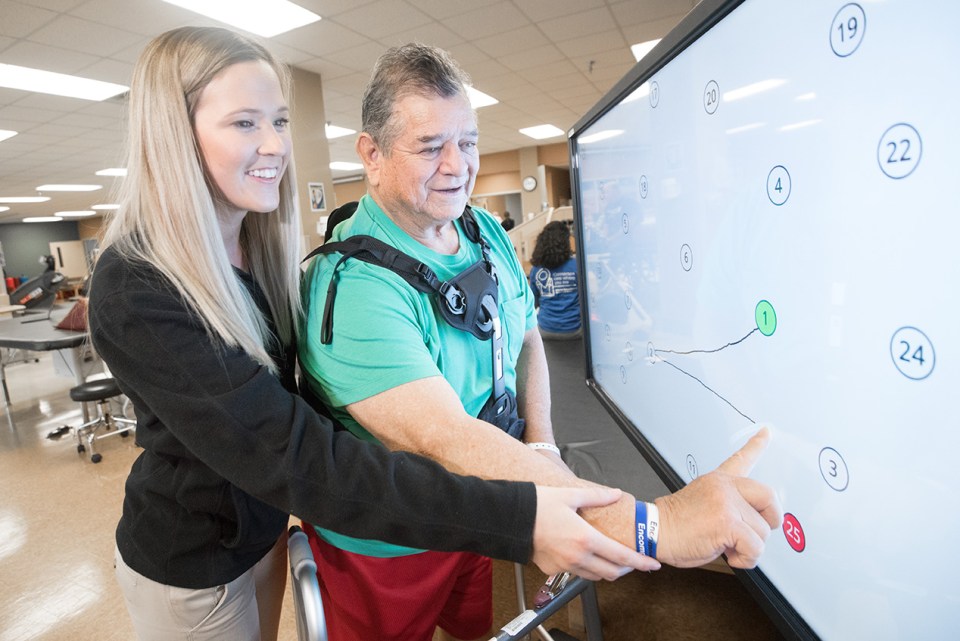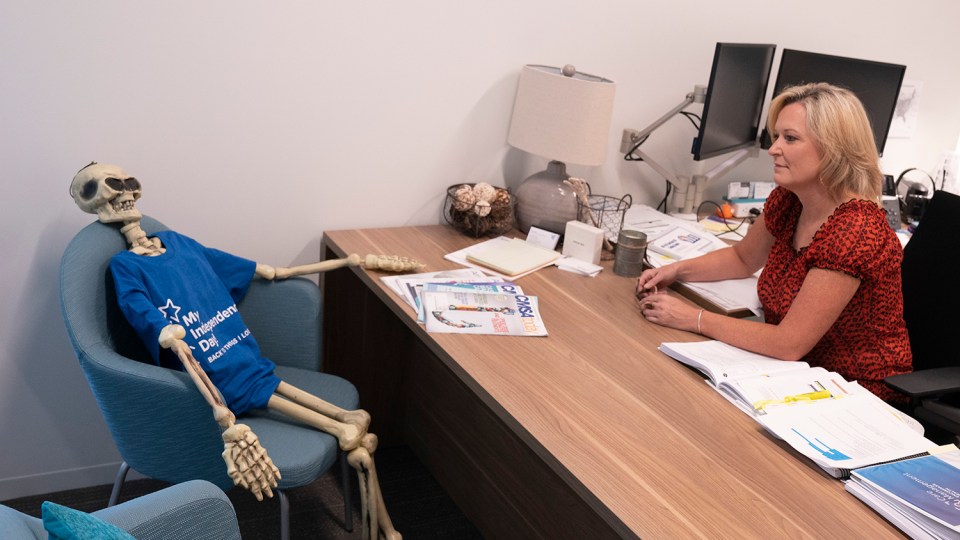The effects of a stroke are unique to each patient and everyone’s path to recovery will look different. However, there are inherent truths to stroke treatment that should guide clinical decisions on the best care for patients.
The evidence-based facts below supply important information on stroke recovery and the role that rehabilitation plays in reaching one’s full potential.
1. Did you know the American Stroke Association strongly recommends that stroke patients be treated at an inpatient rehabilitation facility, rather than a skilled nursing facility or nursing home?
In its guidelines for adult stroke rehabilitation published in 2016, the AHA/ASA calls for intensive, multidisciplinary treatment at an inpatient rehabilitation hospital.
Patients at an inpatient rehabilitation hospital receive at least three hours of therapy five days per week, while a nursing home typically only offers one to two hours per day. At an inpatient rehabilitation hospital, a team of nurses, therapists and physicians work together to form a care plan that provides you the right dose of rehabilitation to help you reach your goals.
2. Did you know patients have a choice on where to go for rehabilitation after a stroke?
Dr. Carolee Winstein, lead author on the AHA/ASA guidelines notes, “if the hospital suggests sending your loved one to a skilled nursing facility after a stroke, advocate for the patient to go to an inpatient rehabilitation facility instead.”
Though a physician or case manager may make a recommendation on where a patient should go for rehabilitation following a stroke, patients have a voice, and you can empower patients to speak up when planning their care.
Suggest patients and families visit and take a tour. Many families and patients are surprised to find themselves wheeled into a nursing facility that performs rehabilitation and not a rehabilitation hospital or true rehabilitation facility. Encourage patients to ask the following questions as they visit various facilities.
- Will a rehabilitation doctor see the patient?
- Do they have all the necessary team members—physician, speech language pathologist, physical therapist, occupational therapist, dietitians, specialized rehabilitation nurses and more—on site?
- How many hours of therapy per day will the patient receive?
- Are the nurses certified in rehabilitation?
- What percentage of the facility’s stroke patients are discharged back to their homes?
3. Did you know patients who receive at least three hours of daily rehabilitation therapy had significantly better functional gains and outcomes than those who received less than three hours?
In a 2013 study by Dr. Hua Wang, the daily treatment of at least 3 hours of physical therapy, occupational therapy and speech and language therapy was associated with better functional gains than those who received less than three hours per day. Skilled nursing facilities do not supply 3 hours a day of therapy.
4. Did you know enriched environments, such as an inpatient rehabilitation hospital, enhance the recovery in stroke patients resulting in shorter lengths of stay and fewer adverse events?
A study published in Clinical Rehabilitation shows that social and cognitive stimulation in an enriched environment after a stroke may enhance recovery. At an inpatient rehabilitation hospital, such as Encompass Health rehabilitation hospitals, this environment may include:
- Less time alone in bed in their room
- State of the art gyms with the latest technology
- Group therapy that provides education, emotional support and opportunities for communication
- Communal dining
- Family involvement outside of therapy hours
5. Did you know that bowel and bladder continence is one of the major determinants of self-esteem and whether a patient goes home?
Though it may not be the most glamorous to discuss, bowel and bladder incontinence is one of the major reasons a patient may not go home after a stroke. (Cochrane Reports). At Encompass Health rehabilitation hospitals, specialized bowel and bladder programs are in place to help patients regain continence.
The content of this site is for informational purposes only and should not be taken as professional medical advice. Always seek the advice of your physician or other qualified healthcare provider with any questions you may have regarding any medical conditions or treatments.




